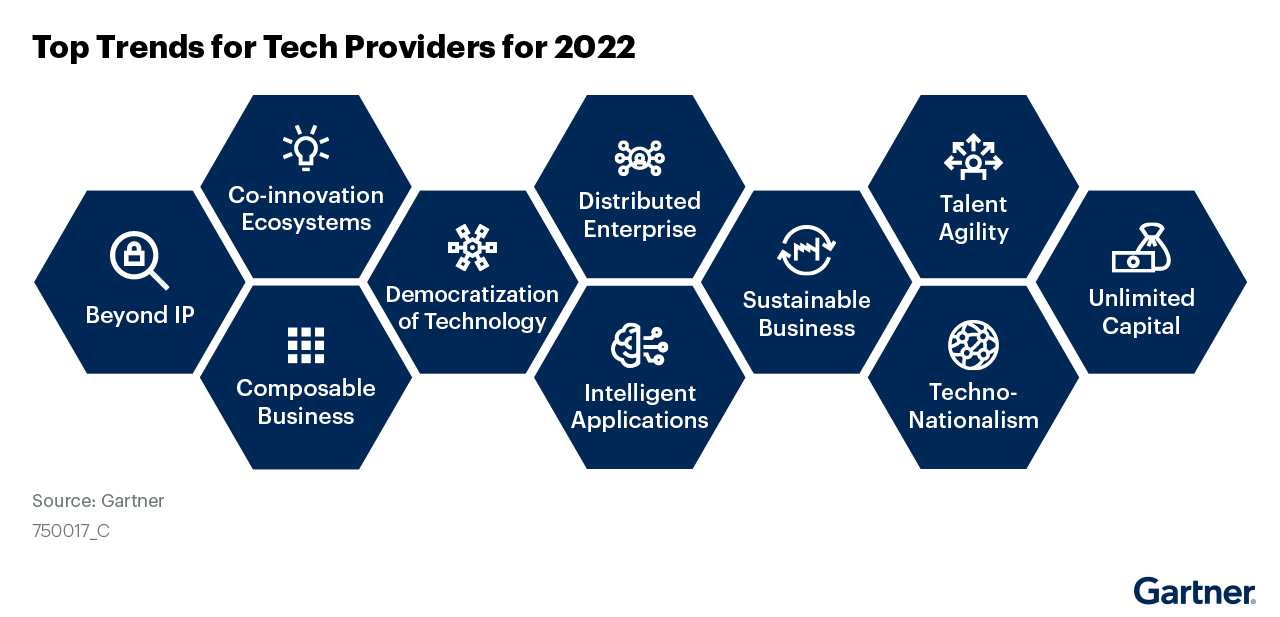remote work
Empowering Teams: Effective Strategies for Remote Work Success

Empowering Teams: Effective Strategies for Remote Work Success
As the landscape of work continues to evolve, remote work has become a predominant feature of modern business. Navigating the challenges and maximizing the benefits require well-crafted strategies. In this article, we delve into effective remote work strategies that empower teams and drive success.
Creating a Collaborative Virtual Environment
One of the key challenges in remote work is maintaining a sense of collaboration. To overcome this, businesses should invest in collaborative tools and platforms. Video conferencing, project management systems, and communication apps play a crucial role in fostering virtual teamwork. Establishing clear communication channels helps bridge the physical gap and promotes a sense of unity among remote team members.
Setting Clear Expectations and Goals
Clarity is paramount in a remote work setting. Establishing clear expectations and goals helps remote employees understand their roles and responsibilities. Clear communication regarding deadlines, deliverables, and performance expectations ensures that everyone is on the same page. This clarity not only enhances productivity but also contributes to a positive work culture.
Encouraging Flexible Schedules and Work-Life Balance
Remote work often comes with the benefit of flexibility. Encouraging team members to adopt flexible schedules that suit their individual preferences can contribute to increased job satisfaction. However, it’s equally important to emphasize the importance of maintaining a healthy work-life balance. Establishing boundaries and promoting self-care can prevent burnout and ensure sustained productivity.
Fostering Virtual Team Building Activities
Building a strong team culture is challenging when employees are geographically dispersed. Virtual team-building activities can bridge this gap. From virtual happy hours to online games and collaborative projects, fostering a sense of camaraderie among team members is essential. These activities contribute to a positive team spirit and strengthen interpersonal connections.
Providing Adequate Training and Support
Remote work often requires employees to adapt to new technologies and tools. Providing comprehensive training and ongoing support is crucial for the seamless integration of remote work strategies. This ensures that team members feel equipped to navigate the digital landscape and perform their roles efficiently.
Implementing Performance Monitoring and Feedback Systems
In a remote work environment, traditional methods of performance monitoring may need adjustment. Implementing digital tools for performance tracking and providing regular feedback becomes essential. This not only helps in gauging individual and team performance but also provides opportunities for professional development.
Cultivating a Culture of Trust and Accountability
Trust is the foundation of successful remote work strategies. Leaders should cultivate a culture of trust by empowering their teams and acknowledging individual contributions. Simultaneously, fostering accountability ensures that team members take ownership of their tasks and deliverables. This dual approach creates a balanced and resilient remote work culture.
Leveraging Technology for Seamless Collaboration
The right technology is instrumental in ensuring seamless collaboration among remote teams. Cloud-based solutions, collaborative software, and virtual project management tools facilitate efficient workflows. Integrating these technologies streamlines processes, enhances communication, and promotes a unified work environment.
Addressing Mental Health and Well-Being
The isolation of remote work can impact the mental health and
Innovative Horizons: Trends Shaping Business Evolution

Innovative Horizons: Trends Shaping Business Evolution
In the dynamic landscape of business, staying ahead requires a keen eye on emerging trends that shape innovation. From technology advancements to shifts in consumer behavior, businesses that embrace these innovation trends position themselves for success. Let’s explore some of the key trends driving business innovation.
Embracing Digital Transformation
Digital transformation is a pervasive trend reshaping how businesses operate. The integration of advanced technologies, such as artificial intelligence, machine learning, and automation, is streamlining processes, enhancing efficiency, and opening new avenues for growth. Companies that leverage digital tools find themselves better equipped to adapt to changing market dynamics.
Elevating Customer Experience through Personalization
Consumer expectations are evolving, and businesses are responding by focusing on personalized customer experiences. Innovative companies employ data analytics and AI to understand individual preferences, tailoring products, services, and interactions. This emphasis on personalization fosters stronger customer relationships and enhances brand loyalty.
Rise of Remote Work and Hybrid Models
The global shift towards remote work has become a transformative force. The adoption of digital communication tools, collaboration platforms, and flexible work arrangements has redefined the traditional office structure. Businesses that embrace remote work trends not only attract top talent but also benefit from increased productivity and a broader talent pool.
Sustainability as a Core Business Strategy
Sustainability is no longer an optional commitment but a business imperative. Companies are integrating environmentally conscious practices into their strategies, from sustainable supply chains to eco-friendly product development. Prioritizing sustainability not only aligns with societal expectations but also contributes to long-term business resilience.
Blockchain Revolutionizing Industries
Blockchain technology is disrupting industries by providing secure, transparent, and decentralized solutions. Beyond cryptocurrencies, businesses are exploring blockchain for supply chain management, secure transactions, and data integrity. This trend is reshaping how industries approach security and transparency in their operations.
Artificial Intelligence Driving Innovation
Artificial intelligence continues to be a driving force in business innovation. From predictive analytics to natural language processing, AI is enhancing decision-making processes and automating routine tasks. Businesses that harness the power of AI gain a competitive edge in efficiency, innovation, and customer satisfaction.
Augmented and Virtual Reality Transforming Experiences
Augmented reality (AR) and virtual reality (VR) are transforming how businesses engage with consumers. From immersive marketing experiences to virtual product trials, AR and VR technologies create interactive and memorable brand interactions. Businesses incorporating these technologies set themselves apart in a crowded market.
5G Revolutionizing Connectivity
The rollout of 5G networks is ushering in a new era of connectivity. This trend is not only enhancing internet speed but also unlocking possibilities for innovations like the Internet of Things (IoT) and real-time data processing. Businesses leveraging 5G technology can deliver faster and more reliable services, driving innovation in various sectors.
Evolving E-commerce and Contactless Solutions
The acceleration of e-commerce trends has been propelled further by a focus on contactless solutions. From touchless payments to virtual shopping experiences, businesses are adapting to changing consumer preferences. The integration of seamless and secure contactless options enhances customer satisfaction and
Housing Horizon: Unveiling Real Estate Market Trends

Housing Horizon: Unveiling Real Estate Market Trends
The real estate market is a dynamic landscape influenced by various factors, from economic shifts to societal changes. This article delves into the current trends shaping the real estate market, offering insights into what homebuyers, sellers, and investors can expect in the ever-evolving housing horizon.
Economic Impact on Housing
Economic factors play a significant role in shaping real estate trends. Economic downturns or upswings directly influence housing demand and affordability. As economies recover from global challenges, such as the recent pandemic, real estate markets respond with shifts in pricing, mortgage rates, and overall market activity.
Remote Work and Housing Preferences
The rise of remote work has brought about a paradigm shift in housing preferences. Homebuyers are increasingly prioritizing spaces that accommodate remote work needs. This has led to a surge in demand for homes with dedicated offices, outdoor spaces, and enhanced connectivity, reshaping the criteria for an ideal home.
Urban vs. Suburban Dynamics
The dynamics between urban and suburban living have experienced notable changes. While urban areas historically held appeal for their proximity to amenities and workplaces, the pandemic has driven a surge in suburban demand. Homebuyers seek larger properties, green spaces, and a quieter lifestyle, prompting a reevaluation of urban living priorities.
Sustainability and Green Features
Sustainability has become a focal point in real estate trends. Homebuyers increasingly prioritize eco-friendly features, energy-efficient appliances, and environmentally conscious designs. The integration of sustainable practices not only aligns with environmental concerns but also enhances property values and attracts a growing segment of environmentally conscious buyers.
Technology Integration in Real Estate
The integration of technology is transforming the real estate industry. Virtual tours, augmented reality, and online platforms are becoming standard tools for property viewing and transactions. Technology streamlines processes, enhances property marketing, and offers a more accessible and efficient experience for both buyers and sellers.
Affordability Challenges and Solutions
Affordability remains a persistent challenge in many real estate markets. Skyrocketing home prices and limited inventory pose barriers for aspiring homebuyers. Addressing affordability challenges requires innovative solutions, such as government initiatives, community land trusts, and collaborative efforts between stakeholders to create more inclusive housing opportunities.
Market Trends in Commercial Real Estate
Commercial real estate is also experiencing shifts in response to changing business landscapes. The rise of remote work has influenced office space demand, with companies reevaluating their space requirements. Retail spaces are adapting to e-commerce trends, and industrial properties are in high demand due to the growth of online shopping and distribution needs.
Vexhibits: Navigating Real Estate Trends
Explore how Vexhibits navigates and adapts to real estate trends. By staying attuned to market dynamics, Vexhibits showcases a commitment to providing spaces that align with evolving housing preferences and emerging trends.
Financial Considerations and Mortgage Trends
Financial considerations, including mortgage trends, significantly impact the real estate market. Mortgage rates, lending policies, and government incentives influence homebuying decisions. Understanding these financial dynamics is crucial for both buyers and sellers, shaping their strategies in response to prevailing market
